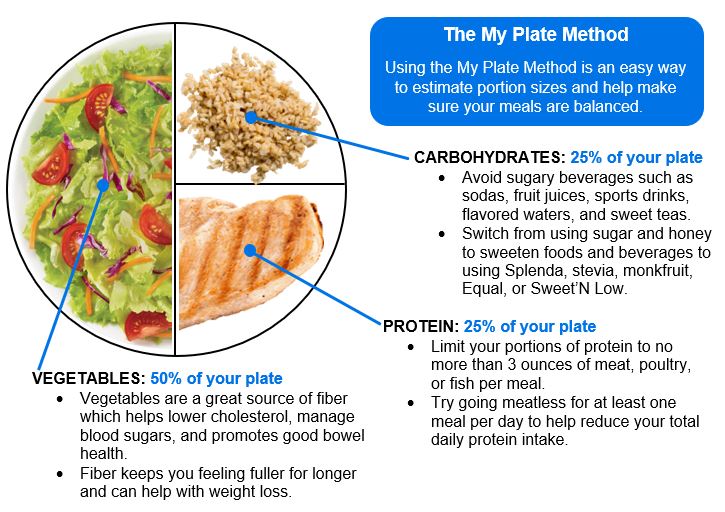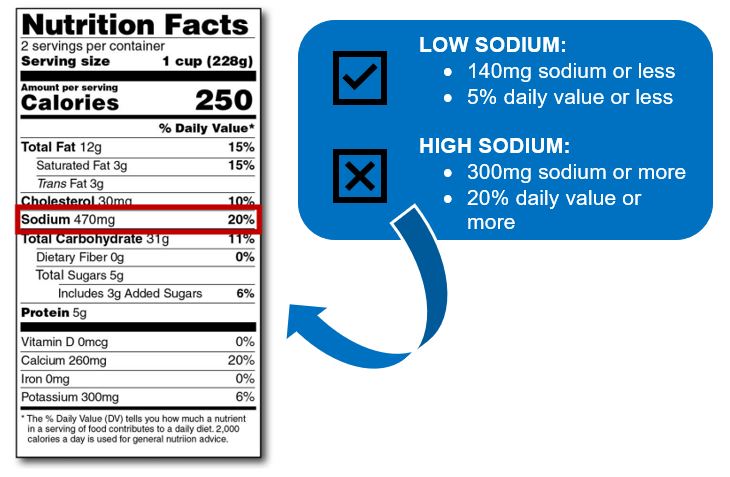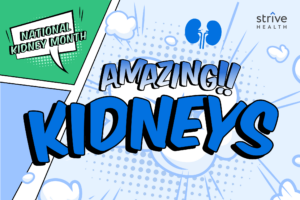Kidney Diet Basics
Author : Strive HealthFollowing a kidney-friendly diet may be recommended by a doctor or a nephrologist to help manage chronic kidney disease (CKD). With kidney disease, the types of nutrients the body needs may change depending on your lab results, stage of disease or other factors specific to your health. Changing what we eat can be hard but following a kidney-healthy diet can help to slow the progression of kidney disease.
The Plate Method
The plate method is a great guideline you can use to make sure your diet has the right amount of different food groups and supplies your body with the balanced fuel it needs. The plate method focuses on making ½ of the plate vegetables, ¼ of the plate carbohydrates and the remaining ¼ of the plate protein.
Sodium
Sodium in our diet comes from many different sources. It can come from the salt we add when cooking and preparing our meals, but it can also come from packaged, processed foods that already have salt added to them. Using low-sodium spices and herbs such as garlic, onion powder, chili powder, or even salt-free seasoning blends is a great way to cut down on the amount of salt we add to our meals while preparing them. Another great way to reduce the amount of sodium in our diets is by reading a food label on packaged items. Choose foods that have 140 mg of sodium or less per serving on the label.
Phosphorus and Potassium
Your nephrologist may draw additional labs such as phosphorus and potassium. It is important to speak with your nephrologist about these levels. Both potassium and phosphorus can be affected by the foods we eat so it may be helpful to speak with a kidney dietitian to determine how much of these nutrients you should be eating.
Diabetes and High Blood Pressure
In addition to following a kidney-friendly diet, it is important to manage other conditions such as high blood pressure or diabetes. High blood pressure and uncontrolled diabetes are two of the main causes of kidney disease. In combination with a kidney-healthy eating plan, improving high blood pressure and managing diabetes numbers can help to slow down the damage to the kidneys.







